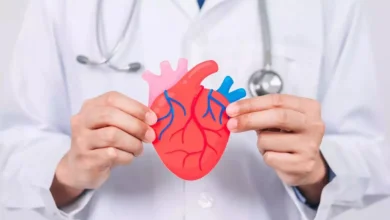These 5 substances, in addition to alcohol, are also harmful to the liver, so the more you can avoid them, the better
One of the body’s essential organs, the liver, is essential to sustaining our general health. Although most people are aware that drinking too much alcohol may impair the liver, there are numerous additional variables that can have a detrimental affect on this vital organ. This post will address some less well-known liver foes and how avoiding them might enhance health.
1. A Sweet Poison for Your Liver: High-Sugar Diets
The typical contemporary diet contains a lot of sugar. It’s not just the odd treat or sugar-sweetened drinks; sugar has covertly crept into many of the components of our everyday diet. More than we would realize, the excessive sugar component of our meals is bad for our health. While many individuals are aware of the dangers of sugar for their teeth and weight, the effects of sugar on the liver are often disregarded.
1.1. Processed foods with undetectable sugars
Concerns about hidden sugars in processed meals have grown significantly. Added sugars may be discovered in a surprising variety of foods, including ketchup, salad dressings, and even whole-grain bread. Our daily sugar consumption is greatly increased by these hidden sugars. It’s important for customers to thoroughly read nutrition labels. Watch out for substances with names like sucrose, high fructose corn syrup, and other sugar-related terms. The health of your liver may be greatly improved by cutting down on these hidden sugars.
Sugar is broken down by the liver and stored as glycogen for later use. However, an excessive sugar consumption causes a condition called non-alcoholic fatty liver disease (NAFLD), which is characterized by an accumulation of fat in the liver. This may eventually lead to more serious liver issues, such as liver scarring and inflammation.
2. Fatty Foods: The Cause of Liver Fat
Trans and saturated fats have long been recognized to have a detrimental effect on heart health. Their impact on the liver is often overlooked. A diet high in these bad fats may cause non-alcoholic fatty liver disease (NAFLD), which is an accumulation of fat in the liver.
2.1. Choose Nutritious Fats
Consider healthier options before indulging in the bad fats found in processed snacks and fast meals. Nuts, avocados, and fatty fish are all healthy options. They contain unsaturated fats, which support the health of the liver. You may aid in preventing the accumulation of fat in your liver by including these replacements into your diet.
3. Get Moving for a Healthier Liver: Avoid a Sedentary Lifestyle
Sedentary lifestyles have taken over in today’s technologically advanced environment. At work, during commutes, and when unwinding in front of screens at home, we spend a lot of time sitting down. However, a lack of exercise may have detrimental effects, including those on the functioning of the liver.
3. Aim for 150 minutes of weekly exercise.
To maintain optimal heart health, the American Heart Association advises engaging in at least 150 minutes of moderate-intensity exercise per week. Regular physical exercise not only aids in weight control but also lessens the buildup of fat in the liver. Exercise lowers the risk of fatty liver disease by enhancing the liver’s capacity to metabolize and digest nutrients effectively.
Regular exercise also aids in weight control, which also promotes the health of the liver. To lower the risk of liver problems, it’s crucial to maintain a healthy weight.
4. A Silent Liver Aggressor: Excessive Salt Consumption
High salt consumption is often linked to hypertension and cardiovascular issues. However, while less often acknowledged, consuming too much salt may also have harmful consequences on the liver.
Watch Your Sodium Intake (4.1)
The body’s salt levels are tightly controlled by the liver. Consuming too much salt may harm the liver by making you retain water and making you more likely to develop cirrhosis. It’s crucial to pay attention to how much salt you consume. This entails eating fewer meals that are heavily processed and salty, as well as using less table salt overall. Use herbs and spices instead of salt and pepper to season your food. Consuming less salt helps preserve your liver and improve your general health.
5. Precautions When Using Over-the-Counter Painkillers
Painkillers sold over-the-counter (OTC) are often used to treat headaches, muscle pains, and other mild discomforts. Acetaminophen (Tylenol) and ibuprofen (Advil), for example, might have a negative side effect if taken in excess.
5.1. Adhere to Suggested Doses
When taking OTC painkillers, it’s important to stick to the suggested doses. These drugs, particularly when mixed with alcohol, may harm the liver if used in excess or over a lengthy period of time. These medicines are metabolized by the liver, and overuse may interfere with this process. The risk of liver damage is increased when OTC painkillers are used with alcohol.
Always take painkillers carefully, and if you’re worried about how they can affect your liver, talk to a doctor. Alternative pain treatment techniques are often available and are less detrimental to the liver.
The potential damage that these five variables might do to the liver is often overlooked. You may dramatically lower your chance of developing liver issues and improve your general health by adopting tiny, attainable adjustments to your food and lifestyle. In conclusion, having a healthy liver is essential for sustaining a body. Your liver’s health may be greatly improved by avoiding high-sugar diets, fatty meals, sedentary lifestyles, excessive salt consumption, and over-the-counter medicines. You can protect your liver, your general health, and ultimately your quality of life by establishing these healthy behaviors.







